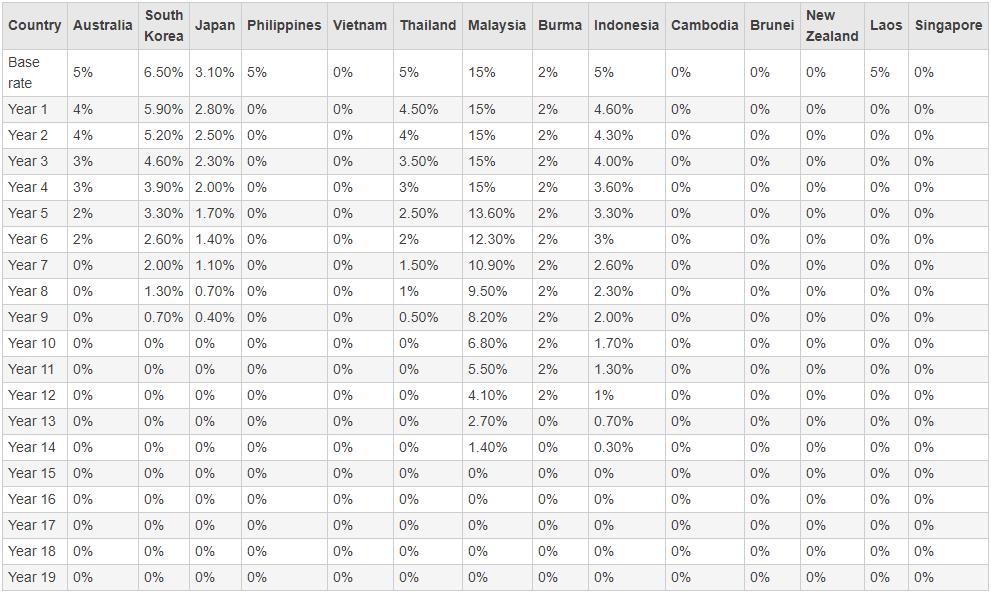How will RECP impact over China PET bottle chip export
On November 2, the Regional Comprehensive Economic Partnership Agreement (RCEP) was announced to enter into force on January 1, 2022, mainly involving six ASEAN members, including Brunei, Cambodia, Laos, Singapore, Thailand and Vietnam, and four non-ASEAN members, including China, Japan, New Zealand and Australia.
China PET bottle chip export greatly exploded in the second half of 2021, especially at the end of the third quarter and the beginning of the fourth quarter. From September to October, PET resin export order intake exceeded 400000 tons for two consecutive months, which accounts for about 50% of domestic output. Therefore, PET bottle chip export market shall not be underestimated in the future.
The ASEAN region has always been the main destination of China PET bottle chip, and in the first 3 quarters of 2021, China PET exports to ASEAN countries took up 15.2% of its total exports. Japan was also China's largest export destination before the implementation of anti-dumping duties, but has declined significantly since the ADD in 2018. In addition, the imports of Chinese PET bottle chip from non-ASEAN members such as New Zealand and Australia are also increasing year by year. Therefore, after the Regional Comprehensive Economic Partnership Agreement (RCEP) was announced on Nov 2, it may have a far-reaching impact on the future since its formal entry into force on January 1, 2022.
For Japan, the annual demand for PET is about 1-1.1 million tons, of which about 900000 tons need to be imported from abroad, and imports from China once possessed about 50% of Japan's overseas imports. Therefore, after the anti-dumping duty expires at the end of 2022, Japan will probably consider abolishing the anti-dumping duties. However, unlike Japan's previous tariff exemption on Chinese-made PET bottle chip (Form A), after RCEP comes to effect, Japan's basic import tariff was approved at 3.1%, at a rate reduction of 0.3% per year, to achieve zero tariff by 2031.
China and ASEAN have previously had FTA tariff agreements, but not all ASEAN countries are duty-free on Chinese-made PET bottle chip. At present, Thailand and Vietnam impose 3% tariff (it is reported that Thailand has dropped to 2.5%, and has been reducing year by year), Indonesia 5%. However, according to the RCEP tariff list, starting from January 1, 2022, the base tax rate will be 5% in Thailand, 0% in Vietnam and 5% in Indonesia. Among them, Thailand achieved zero tariff on PET bottle chip from China in the 10th year, and Indonesia achieved zero tariff in the 15th year. Of course, in view of the fact that these three countries are currently levying additional tariffs outside the FTA, whether they will do in full accordance with the RCEP agreement in the future will depend on the actual implementation.
Figure 1. RECP import tariff on PET resin effective since Jan 2022 (specific to HS code 390761 series)

- Top keywords
- Cotton Price
- Cotton Futures Price
- Cotton Futures
- CZCE
- PTA Futures Price
- Chemical Fiber
- Polyester Prices
- Wool price
- PTA Futures
- Shengze Silk
- China
- Yarn Price
- price
- China Textile City
- Fibre Price
- Benzene Price
- Cotton
- Index
- Cotton Index
- PTA
- fabric price
- NYMEX
- Top 10
- textile industry
- Spot Cotton
- Cotton Yarn
- Polyester Price
- Futures
- PTA Price
- cotton yarn price

